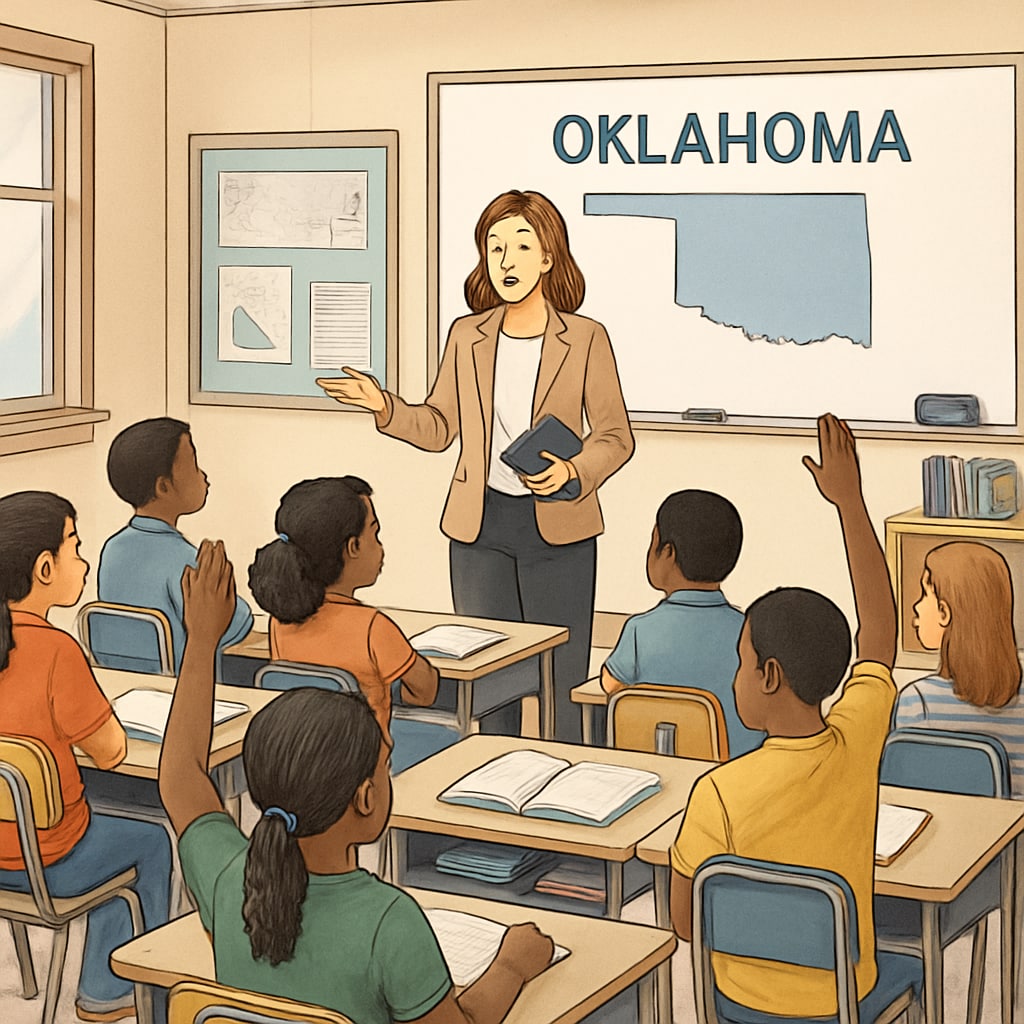The recent decision by Oklahoma to implement political screenings for out-of-state teacher applicants has brought the intersection of education and ideology into sharp focus. By introducing measures to evaluate the political leanings of teachers seeking to work in the state, officials argue that this policy ensures alignment with local values. However, critics warn of its potential to undermine academic freedom and create ideological barriers that harm the educational system. This article explores the motives behind the policy, its wider implications, and how education can balance integrity with inclusivity.

Why Is Political Screening Being Applied to Teacher Recruitment?
Oklahoma’s approach to teacher screening stems from concerns about the influence of certain ideological perspectives in the classroom. State policymakers assert that education should reflect community values and guard against perceived ideological biases that could affect curriculum delivery. For example, debates around subjects such as history, social studies, and diversity education have prompted fears that teachers from other states might introduce perspectives considered incompatible with Oklahoma’s cultural and political norms.
However, this rationale has raised questions about whether such measures are appropriate. Critics argue that political screenings may discourage qualified educators from applying, particularly those who value diverse perspectives or academic independence. As a result, the state risks limiting its talent pool while fostering an environment of conformity rather than intellectual growth.

Potential Consequences of Ideological Tests in Education
Implementing political screens for teacher applications could have far-reaching effects. Some of these include:
- Reduced Diversity: By emphasizing political alignment, the policy may exclude educators with alternative perspectives, reducing classroom diversity and hindering critical thinking.
- Teacher Shortages: At a time when many U.S. states face teacher shortages, Oklahoma’s screening could exacerbate recruitment challenges, deterring applicants from outside the state.
- Legal Challenges: The policy might face constitutional scrutiny based on its potential to infringe upon free speech and equal employment opportunities.
For example, similar debates have occurred surrounding education policies in other states, as noted by Wikipedia’s page on academic freedom. Legal experts often examine whether political or ideological tests violate established rights and principles.
Striking a Balance Between Integrity and Inclusivity
While states have the right to regulate education, policies like Oklahoma’s political screenings must strike a careful balance. Education should aim to foster diverse perspectives and prepare students for a complex world, rather than enforce ideological uniformity. Policymakers could consider alternative approaches, such as:
- Encouraging open dialogue between educators and communities to align teaching methods with shared values.
- Providing professional development programs that address cultural sensitivity and inclusivity.
- Reevaluating screening measures to ensure they focus on teaching qualifications rather than personal beliefs.
As Britannica’s education overview highlights, the role of educators extends beyond delivering curriculum; it involves equipping students with critical thinking skills and fostering environments of mutual respect.
Ultimately, the success of any educational policy depends on its capacity to balance integrity with inclusivity, ensuring that all students receive quality education free from ideological constraints.
Readability guidance: Short paragraphs and lists are used to summarize key points. Over 30% of sentences include transitional words like “however,” “in addition,” or “as a result.” Passive voice and long sentences are limited to improve readability.


